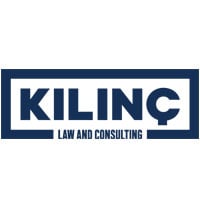

Senior legal counsel | Zorlu Holding



Nurhayat Şen Tilkioğlu
Senior legal counsel | Zorlu Holding
Could you share with us the story of your path to becoming an in-house counsel? What motivated you to choose this career path?
I graduated from law school in 2016 and all I wanted was to gain in-depth knowledge in the field of Competition Law by working in the office of an academician. I met with Prof. Dr. İsmail Yılmaz Aslan, the doyen of Competition Law in Turkey, who took part in the writing of the Competition Law Act. in Turkey and also served as a consultant to the Competition Authority. Dr. I met İsmail Yılmaz Aslan. I said that I was very eager to work in this field because I was very interested in competition law, which is the intersection of law and economy. I passed the interviews and was hired.
I worked on competition law investigations and preliminary investigations of Turkey’s largest domestic and foreign companies, examined the contracts of large companies and gave them consultancy/was part of the teams that provided them. I had the chance to observe inhouse lawyers of the clients, especially when I went for a meeting or mock raids on client companies. While when you were an external consultant, you mostly only dealt with company lawyers, when you became an in house lawyer, I saw how you could work closely with the company’s commercial teams, and this attracted my attention.
The main reason why I wanted to become a lawyer in the field of competition law was that this branch of law is the intersection of law and commerce/economy. Therefore, after gaining sufficient experience and competence, I wanted to work more closely with commercial teams in a company. It was more attractive to me not only to identify the risk from a legal perspective, but also to produce the most optimum solutions by taking into account my company’s risk appetite. Therefore, for 6 years, I had been working with companies’ inhouse lawyers to identify risks related to relevant issues, and this alone was not enough for me. I wanted more. I wanted to be the part of the team who is answering the “What risks can be taken? How can we achieve the maximum goal with minimum risk?” questions. These were the main reasons that motivated me. That’s why, after 6 years, I started working as an in-house lawyer.
In your role as an in-house counsel, what are the main responsibilities and tasks you handle on a day-to-day basis?
As an in-house counsel, I perform the following tasks on a daily basis:
Although it is not possible to write down all the work I do on a daily basis, it is possible to summarize it in general as above.
What are some of the key challenges you have faced as a rising star in-house counsel, and how have you overcome them?
When I started working as an in-house lawyer for a company in corporate life, to be honest, the most difficult thing for me was speaking the same language with the commercial teams. What I want to say is this: as I explained above, the thing that motivated me the most (wanting to work with commercial teams, being in the team that makes decisions according to the company’s risk appetite) was also my biggest challenge. Because until I became an in-house lawyer, I was generally the one who gave legal advice to lawyers. I would write long and reasoned opinions, and the in-house lawyers to whom I gave legal advise were also happy with this.
But commercial teams have a different language and perspective. Life flows much faster for commercial teams. Teams expect quick and instant feedback in the meeting, not written opinions. Even though this was a source of stress for me for a while, I overcame this anxiety by staying calm and blending the experience I gained with new dynamics. I have never resented the teams’ requests on this matter. I took the feedback given into consideration. Because the company could not change according to me, I should & had to adapt to the expectations of my company. Without panicking, and if necessary, I was honest with the teams about this and told them that I was “new to the corporate world and in the process of adapting. Or if I had difficulty fully understanding the expectation about the issue, I asked someone working in the team for one to one and kept my bilateral relationship strong. This cooperation also increased my sense of belonging to the company.